Advertising & Marketing
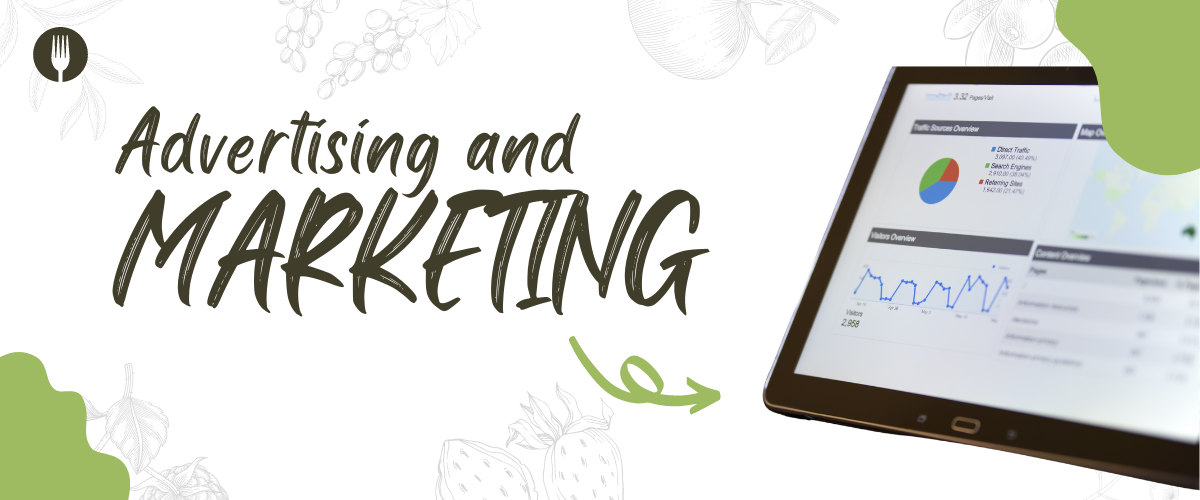
A very important pillar to fighting obesity is the way in which foods, and particularly unhealthy foods, are advertised and marketed to consumers. Consumer co-operatives make increasingly use of technology for the purposes of advertising and marketing. Importantly, a particularly vulnerable consumer group in this respect are children, and consumer co-operatives are therefore committed to advertise consciously to this younger group of consumers.

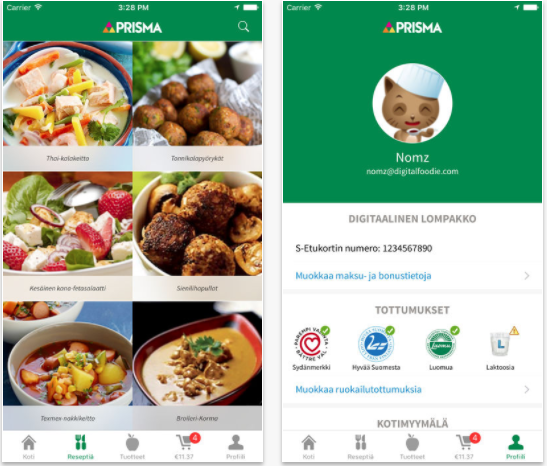 The S-Group has deployed the Foodie.fi smartphone app to all of their stores under four different banners that include convenience stores, supermarkets, and hypermarkets. The service includes everything from inspirational recipes to Click&Collect and home deliveries. It has more than 1 million users. “Foodie.fi” not only stores data, including personal health data, but it also composes recipes according to the personal preferences of its users. It includes smart shopping lists and product recommendations, as well as an automatic menu which presents the most suitable food components for personal recipes.
The S-Group has deployed the Foodie.fi smartphone app to all of their stores under four different banners that include convenience stores, supermarkets, and hypermarkets. The service includes everything from inspirational recipes to Click&Collect and home deliveries. It has more than 1 million users. “Foodie.fi” not only stores data, including personal health data, but it also composes recipes according to the personal preferences of its users. It includes smart shopping lists and product recommendations, as well as an automatic menu which presents the most suitable food components for personal recipes.
Participating Co-operatives:
S Group (Finland)
Timeline:
2010 - today

 This is the Co-operative Group’s lowest priced own-brand products for which, as per EU and national legislation, the usual strict nutritional values apply. Thus, Simply Value food product packaging features prominent RI (Reference Intakes) recommendations where appropriate (regarding information such as the calorie, sugar, salt and fat content). There are over 100 products in this range. The objective of developing this range is to enable consumers to purchase low-cost, yet healthy products and to understand the nutritional value of these products through clear and easy-to-read nutritional information. Ultimately, this allows consumers to form healthy eating patterns.
This is the Co-operative Group’s lowest priced own-brand products for which, as per EU and national legislation, the usual strict nutritional values apply. Thus, Simply Value food product packaging features prominent RI (Reference Intakes) recommendations where appropriate (regarding information such as the calorie, sugar, salt and fat content). There are over 100 products in this range. The objective of developing this range is to enable consumers to purchase low-cost, yet healthy products and to understand the nutritional value of these products through clear and easy-to-read nutritional information. Ultimately, this allows consumers to form healthy eating patterns.
Participating co-operatives:
The Co-operative Group (UK)
Timeline:
2009 - today

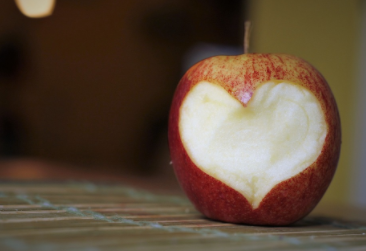 The Co-operative Group has removed all children’s characters from own brand packaging categorised as being high in fat, sugar or salt (also called HFSS foods), with the exception of seasonal and special occasion products. With this decision, the Co-operative Group is committed to avoiding such direct marketing and advertising to children of products that are high in fat, sugar or salt and reducing the levels of ‘pester power’ related to ‘unhealthy’ foods, exercised by children on their parents. In terms of press activity, the Co-operative Group will not advertise high fat, sugar and salt products in specific children’s titles or adjacent to children’s pages in newspapers. All press advertising undertaken by the Co-operative Group aimed directly at children will exclude high fat, sugar and salt products. Furthermore, the Co-operative Group has banned the sale of all high fat, sugar or salt products from checkout stands (except sugar free gum/mints and medicated sweets) and have committed to ensuring the offer on kiosks will not include any confectionery directly aimed at children via its packaging or marketing and will always offer a choice of healthier options. Lastly, the Co-operative Group will not give free samples or promote by demonstration in stores, any high fat, sugar and salt products aimed specifically at children.
The Co-operative Group has removed all children’s characters from own brand packaging categorised as being high in fat, sugar or salt (also called HFSS foods), with the exception of seasonal and special occasion products. With this decision, the Co-operative Group is committed to avoiding such direct marketing and advertising to children of products that are high in fat, sugar or salt and reducing the levels of ‘pester power’ related to ‘unhealthy’ foods, exercised by children on their parents. In terms of press activity, the Co-operative Group will not advertise high fat, sugar and salt products in specific children’s titles or adjacent to children’s pages in newspapers. All press advertising undertaken by the Co-operative Group aimed directly at children will exclude high fat, sugar and salt products. Furthermore, the Co-operative Group has banned the sale of all high fat, sugar or salt products from checkout stands (except sugar free gum/mints and medicated sweets) and have committed to ensuring the offer on kiosks will not include any confectionery directly aimed at children via its packaging or marketing and will always offer a choice of healthier options. Lastly, the Co-operative Group will not give free samples or promote by demonstration in stores, any high fat, sugar and salt products aimed specifically at children.
Participating co-operatives:
The Co-operative Group (UK)
Timeline:
2013 - today

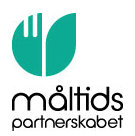
The Danish Meal Partnership (DMP) is a public/private partnership that has 17 member organizations – from the food industry, consumers, trade unions, research institutes, universities, and government authorities. Meal partnership focuses on equity in health and on the part of the population with the greatest challenges of eating healthier. Its purpose is to be a center for development, experiential exchange, and an anchor for knowledge and concrete initiatives about healthier meals. Coop Denmark is member of the board and participates in some of the projects under the partnership (e.g. on nudging initiatives in retail and on developing new health claims).
Over the period 2016-2019, the Meal Partnership will work together to improve food knowledge and food-related skills in the Danish population. The Meal Partnership aims to facilitate eating in a healthy way, and focuses on the part of the population which faces the greatest challenges in this respect, i.e. early school leavers, children, and the elderly. Specific projects emerge when and where there is an interest from the partners. During the 2016-2019 period, the Meal Partnership aims to launch two major projects in cooperation with external funds.
Participating co-operatives:
Coop Denmark
Timeline:
2016 - 2019

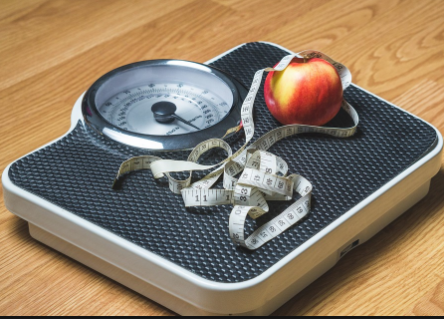 Coop Denmark sees obesity - especially among children and young people - as a serious social problem. Therefore, in collaboration with colleagues in the supermarket industry, it has devised a 13-point action plan against obesity. Points in the action plan include initiatives such as increasing the availability of healthy foods like fish, fruits and vegetables; grocery retail will highlight and market the official dietary recommendations, increasing the visibility of whole grain labelled products (page 3) and keyhole-labelled products; groceries will not encourage the purchase of candy and sweets, and will not give candy or sweets as a premium; packaging of unhealthy foods will be reduced.
Coop Denmark sees obesity - especially among children and young people - as a serious social problem. Therefore, in collaboration with colleagues in the supermarket industry, it has devised a 13-point action plan against obesity. Points in the action plan include initiatives such as increasing the availability of healthy foods like fish, fruits and vegetables; grocery retail will highlight and market the official dietary recommendations, increasing the visibility of whole grain labelled products (page 3) and keyhole-labelled products; groceries will not encourage the purchase of candy and sweets, and will not give candy or sweets as a premium; packaging of unhealthy foods will be reduced.
Participating co-operatives:
Coop Denmark
Timeline:
2014 - today
Latest News
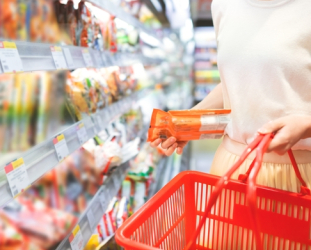
EU Commission Presents New Five-Year Consumer Policy Roadmap
The EU Commission has unveiled its new five-year roadmap for consumer policy, outlining...

Euro Coop Co-Signs Joint Position Paper on Omnibus I
Euro Coop, together with CNA , Legacoop and ECCO , has released a joint position paper in...

Euro Coop is seeking an Erasmus+ Policy Intern
Euro Coop – The European Community of Consumer Co-operatives is seeking a Policy Intern...
Latest Stories

UN Recognises Cooperatives with Decadal International Year
Euro Coop warmly welcomes the United Nations General Assembly’s historic resolution to...

Skupina COOP Wins at the European Commerce Awards 2025
Euro Coop warmly congratulates Skupina COOP , our member from the Czech Republic, for winning...

FNCC Showcases Consumer Cooperation at GSEF 2025 in Bordeaux
Euro Coop member FNCC proudly participated in the Global Social Economy Forum (GSEF) 2025 ,...

